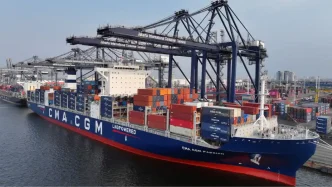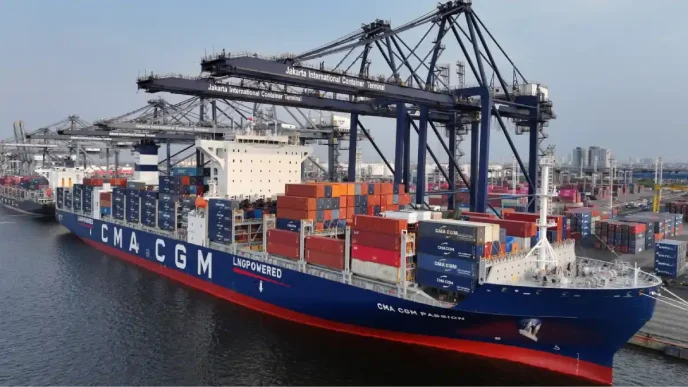In a growing diplomatic and economic dispute, the Thai Employers Confederation (TEC) has strongly defended Thailand’s labour standards, rejecting allegations from Cambodia that Thai businesses exploit Cambodian migrant workers. The accusations, which surfaced recently in regional discussions, have sparked tensions between the two nations, raising questions about worker rights, cross-border labour policies, and the broader implications for Southeast Asian economic cooperation.
Allegations and Rebuttals
The controversy began when Cambodian officials and advocacy groups raised concerns over the treatment of migrant workers in Thailand, alleging substandard working conditions, low wages, and inadequate legal protections. Cambodia, which supplies a significant number of migrant workers to Thailand’s industrial and agricultural sectors, has called for stricter oversight and improved conditions for its citizens working across the border.
In response, the TEC, a prominent body representing Thai businesses, issued a statement denying the claims and emphasizing Thailand’s commitment to international labour standards. The organization highlighted that Thai labour laws are aligned with guidelines set by the International Labour Organization (ILO), and it pointed to ongoing efforts to improve worker welfare through government and private sector collaboration. The TEC also noted that many Cambodian workers choose to work in Thailand due to better economic opportunities compared to their home country.
A Complex Labour Landscape
Thailand hosts millions of migrant workers from neighboring countries, including Cambodia, Laos, and Myanmar, who play a critical role in sustaining industries such as manufacturing, construction, and agriculture. According to data from the Thai Ministry of Labour, over 2 million migrant workers are registered in the country, with a significant portion hailing from Cambodia. These workers often fill labor-intensive roles that are less attractive to local Thai workers, contributing to the nation’s economic growth.
However, the reliance on migrant labour has long been a point of contention. Advocacy groups and international observers have frequently criticized Thailand for gaps in enforcement of labour laws, particularly concerning undocumented workers who may face exploitation due to their lack of legal status. While the Thai government has introduced measures such as work permit systems and bilateral agreements with neighboring countries to regulate migrant labour, challenges remain in ensuring consistent compliance across industries.
For Cambodia, the issue is deeply personal. Many Cambodian families depend on remittances sent by relatives working in Thailand, making the treatment of these workers a matter of national interest. Cambodian authorities have argued that their citizens often face language barriers, limited access to legal recourse, and discrimination in Thailand, which exacerbates their vulnerability. The allegations have prompted calls for dialogue between the two governments to address systemic issues and establish clearer protections for migrant workers.
Economic Stakes in a Regional Context
The dispute over labour standards is not merely a bilateral issue but carries implications for the broader Association of Southeast Asian Nations (ASEAN) economic framework. Thailand and Cambodia are both members of ASEAN, a regional bloc that promotes economic integration and free movement of labour among its member states. Disagreements over worker treatment could strain diplomatic ties and undermine efforts to harmonize labour policies across the region.
Economists warn that unresolved tensions may also impact cross-border trade and investment. Thailand serves as a key economic hub in Southeast Asia, with its industrial zones and export-driven economy relying heavily on affordable labour. Any disruption to the flow of migrant workers from Cambodia could lead to labour shortages, driving up costs for Thai businesses and potentially affecting the competitiveness of Thai goods on the global market.
Moreover, Cambodia’s growing assertiveness on this issue reflects its own economic ambitions. As the country seeks to develop its domestic industries and reduce reliance on labour exports, it is increasingly vocal about protecting its citizens abroad. This shift could signal a broader trend among smaller ASEAN economies to demand greater accountability from larger neighbors like Thailand on labour and migration issues.
Thai Employers’ Perspective
The TEC has framed its defense of Thailand’s labour practices as part of a broader commitment to ethical business conduct. The organization argues that many Thai companies go beyond legal requirements to provide benefits such as housing, healthcare, and training for migrant workers. It also pointed to partnerships with the Thai government to crack down on illegal labour brokers who exploit vulnerable workers, a problem that affects both Thai and foreign employees.
Despite these efforts, the TEC acknowledges that challenges persist, particularly in smaller enterprises or informal sectors where oversight is limited. The organization has called for greater cooperation with Cambodian authorities to address misunderstandings and ensure that accurate information about working conditions in Thailand is communicated to prospective migrant workers. Such collaboration, the TEC suggests, could help dispel negative perceptions and foster trust between the two nations.
Voices from the Ground
While official statements dominate the discourse, the perspectives of migrant workers themselves are crucial to understanding the reality on the ground. Many Cambodian workers in Thailand report mixed experiences. Some express gratitude for the opportunity to earn higher wages than they could in Cambodia, while others describe long working hours, delayed payments, and difficulties in accessing legal support when disputes arise.
Labour rights advocates in both countries argue that the focus should shift from rhetoric to actionable solutions. Proposals include establishing joint task forces to monitor working conditions, creating bilingual support hotlines for migrant workers, and strengthening penalties for employers who violate labour laws. These measures, while resource-intensive, could help bridge the gap between policy and practice, ensuring that workers’ rights are upheld regardless of nationality.
Government Roles and Responsibilities
The Thai government, for its part, has reiterated its commitment to protecting all workers within its borders. Recent reforms to the migrant worker registration process aim to reduce the number of undocumented workers, who are often the most vulnerable to exploitation. Additionally, Thailand has signed memoranda of understanding (MOUs) with Cambodia and other neighboring countries to facilitate legal migration and provide a framework for addressing labour disputes.
However, implementation remains a sticking point. Critics argue that while policies look robust on paper, enforcement is inconsistent, particularly in remote or rural areas where many migrant workers are employed. There is also a need for greater transparency in how complaints are handled and resolved, as well as public reporting on the outcomes of labour inspections.
Cambodia, meanwhile, faces its own challenges in supporting its citizens abroad. Limited resources and bureaucratic inefficiencies often hinder the government’s ability to provide assistance to migrant workers facing difficulties in Thailand. Strengthening consular services and establishing clearer channels for communication with Thai authorities could help address these shortcomings.
Looking Ahead: A Path to Resolution?
As the debate over labour standards continues, the need for dialogue and compromise becomes increasingly apparent. Both Thailand and Cambodia have much to gain from maintaining a cooperative relationship, not only in terms of labour migration but also in fostering regional stability and economic growth. Resolving this dispute could set a precedent for how ASEAN member states address similar challenges in the future, potentially leading to stronger regional mechanisms for protecting migrant workers.
For now, the TEC’s rejection of Cambodia’s allegations marks a critical juncture in the conversation. Whether this will escalate into a prolonged diplomatic rift or pave the way for constructive engagement remains to be seen. What is clear, however, is that the welfare of migrant workers must remain at the heart of any resolution—a principle that both nations, and the wider ASEAN community, cannot afford to overlook.
As discussions unfold, the eyes of the region are on Bangkok and Phnom Penh to navigate this delicate issue with a balance of pragmatism and empathy, ensuring that economic imperatives do not overshadow the human cost of labour migration.
















